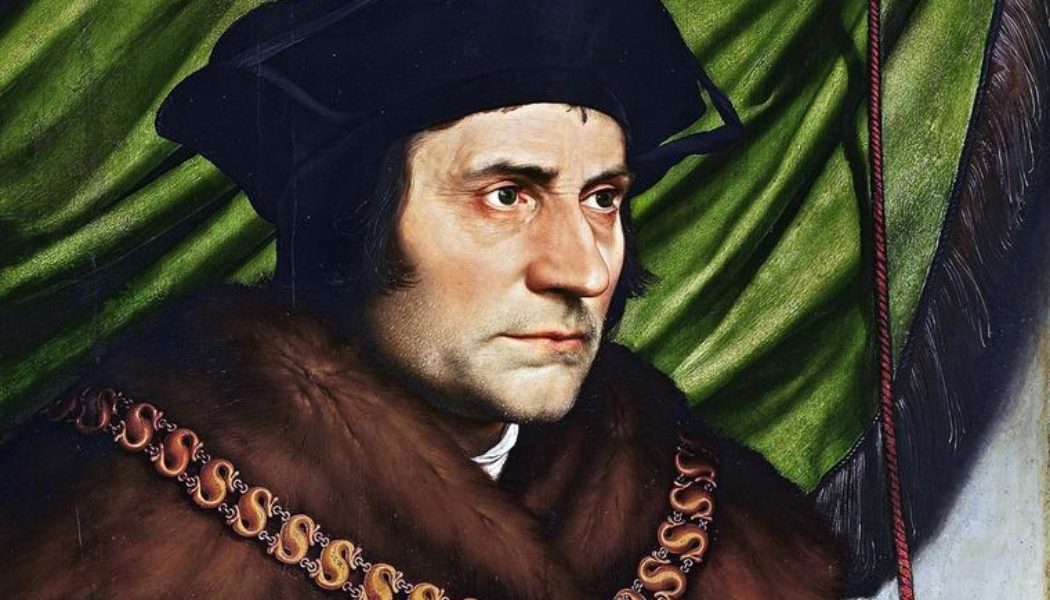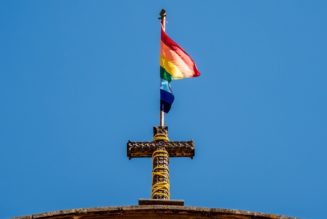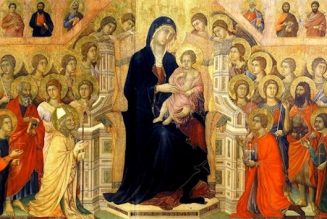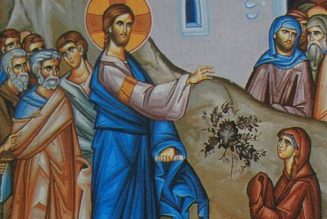
St. Thomas More remained fiercely loyal to his King, but even more so to the preservation of his king’s immortal soul.
“I die the King’s good servant, and God’s first.”
These are the famous words of St. Thomas More, spoken to the crowds moments before his public beheading on July 6, 1535, just two weeks after the execution of St. John Fisher with whom he shares his feast day. Both men chose death rather than betray their faith by acknowledging King Henry VIII as the head of the Church of England.
I knew the story of St. Thomas More, and his commitment to his Catholic faith even in the face of a brutal death (the usual fate for convicted traitors was to be drawn and quartered. King Henry commuted the sentence to beheading for St. Thomas after the verdict was read). But as I recently reread about his final days, including his trial on July 1, 1535, one detail that had previously escaped my notice jumped out. St. Thomas More’s jurors included the father of Anne Boleyn and her brother, George Boleyn. Both men at the time were high-ranking officials in the King’s court. Less than one year later, in May 1536, George Boleyn would also face trumped-up charges of treason and would ultimately meet the executioner’s blade. George’s death was not one of principle as in the cases of Sts. Thomas More and John Fisher. He was merely a political pawn and his death was collateral damage in King Henry’s relentless pursuit of a son and desire for another new wife.
George of course had no way of knowing in July 1535 that his downfall was imminent. Likewise, St. Thomas could not know that one of the men condemning him to die would soon be standing in his shoes on the scaffold. But he knew kings could be fickle and that temporal power could be fleeting. Armed with this knowledge, and strengthened by his faith, he kept his eyes fixed on the Cross.
Refusing to kowtow to political pressures, St. Thomas More was arguably the only good servant of the King in that courtroom. He had served King Henry for years and had been one of his closest advisers. How it must have pained him to see his one-time friend, formerly hailed as the Defender of the Faith, breaking from the Church in order to discard an unwanted wife. Courtiers and advisers, all serving their own ambitions, crowed in approval at Henry’s egoism. St. Thomas More remained fiercely loyal to his king, but even more so to the preservation of his king’s immortal soul. In vain, St. Thomas tried to dissuade Henry VIII from his schismatic path. He attempted to use his influence with the crown to stabilize relations with Rome and to protect the Church in England. Unfortunately, St. Thomas More’s efforts were futile and he ultimately faced the decision to stand in support of Henry VIII’s policies or face the King’s infamous temper.
As we know, St. Thomas More chose the latter. He lost his position in court, followed by his freedom, and eventually his life. In so doing, however, he assured his place in heaven. Nearly 400 years after St. Thomas More’s death, Pope Pius XI canonized him. Today he is honored as the patron of lawyers, civil servants and politicians, and is revered as a martyr for the faith. But in 1535, how foolish his peers must have thought him. He stood to lose everything and he remained unmoved in his conviction.
St. Thomas More’s heroic virtue remains poignant. Today we witness a constant parade of public figures and politicians turning their backs on the teachings of the Church in which they were raised to gain popular approval. We watch a Catholic president proclaim a mother’s right to kill her child and cheer the current attacks on marriage and family. We see Catholic university leaders make their statements in favor of “Pride,” ignoring that the movement’s name itself is one of the seven deadly sins and their duty is to call for repentance and renewal, not celebration. In our own lives, we often assent to our culture’s assault on truth. We make the obligatory social media post to signal our compliance with the cause du jour lest the mob come for us. Perhaps, in a panic, we “like” another’s post, the one that we know distorts the truth but the one we fear we will face retribution for if our failure to affirm is noticed by friends or family.
How often do we make the comfortable choice, the one that will lead to us being well-liked by the world even as we reject God? St. Thomas More understood that ultimately the world’s approval means nothing. He examined each choice through the lens of eternity and acted accordingly. He could have bent before Henry VIII’s will, but he certainly knew that will could change any number of times, forcing him to bend again and again. St. Thomas More made the conscious choice to align his life, not with the whims of his earthly king, but with the unchanging and loving will of his Creator.
God willing, we will never stand before the executioner’s blade. But eventually, death will come for us all. We will look into the all-knowing, and all-loving, eyes of our Maker and we will be called to account for every decision made and action taken throughout our lives. May we be able to say, with the unflinching certitude of St. Thomas More upon the scaffold, that we die as God’s good servant.
St. Thomas More, pray for us!








